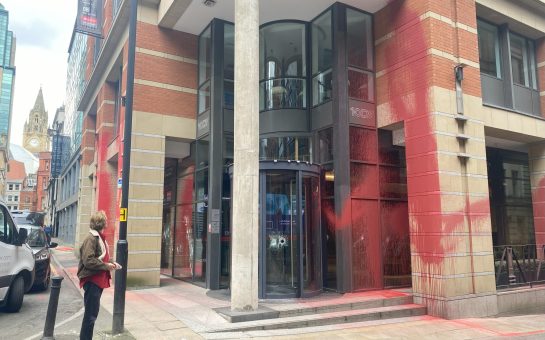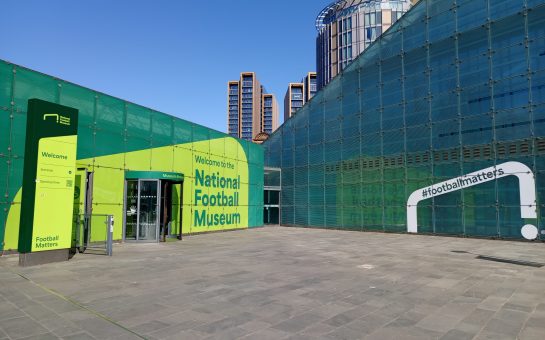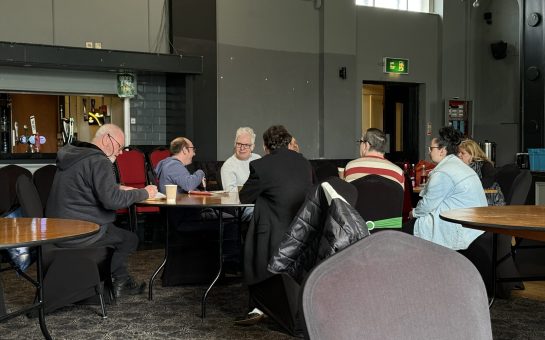Although the rate of increase in the number of new cases in GMCR has slowed, it is still too early to begin to think about returning to business as usual, according to Mayor Andy Burnham and Council Leader Sir Richard Leese.
There have been 5,065 confirmed cases of Covid-19 in Manchester, up from 3,817 this time last week, and just over 1,000 have died.
However, both deaths and hospital admissions are now on a downwards trajectory, with hospitals currently operating at 55% capacity.
Given that cases had been more than doubling each week until now, these numbers show that the spread of the virus is being brought under control.
In spite of this, Mayor Burnham remains reticent, and does not expect that Manchester will hit its own peak for another fortnight or so.
Given the comfortable amount of hospital headroom currently remaining, the Combined Authority are concerned by figures suggesting far lower admissions for a variety of common ailments.
Paediatric appointments, cancer referrals, and A&E admissions are all down compared with expectations for this time of year.
It is emphasised for the second week running that it is still important to phone the emergency services for health concerns, and that services will be able to cope with calls, despite the current strains on the NHS.
Anyone utilising emergency medical services unrelated to the virus will be kept well apart from areas of medical centres where Covid patients are being treated.
Regarding the lack of Personal Protective Equipment (PPE) which has been the focus of national news recently, the mayor says the situation is improving, though mostly due to the efforts of the GMCA, and not the national government.
National PPE stockpiles continue to be an unreliable source of gear, and Manchester has managed to keep its healthcare workers protected by buying equipment itself.
A major consignment of PPE meant for Manchester has been sat idle at Heathrow for a week, and is only now being sent North, which is a source of huge frustration for the council.
Due to local efforts, there should be a steady supply of PPE for the immediate future, and stockpiling efforts are ongoing.
Mayor Burnham has said from the beginning of the lockdown that a major concern of his was the health of the homeless population, and since then an amazing 1,140 homeless people have been housed in hotels.
When lockdown orders began, it was estimated that 1,000 rooms would need to be filled. However, at the start of lockdown, that figure was low, and now looks closer to 1,300, in part due to an additional 144 people being forced to sleep rough during the pandemic.
Additional homeless people include released prisoners, and people living in unstable shared accommodation being evicted, and the mayor accuses ministers of “pulling the drawbridge up” on the newly homeless, as the government has refused to fund their accommodation.
After some discussion this week that Metrolink may need to be bailed out by the government, Burnham was quick to assure frontline workers that public transport would continue to be made available for them, though he didn’t expand on how.
It appears even a £3m bailout, which Mayor Burnham describes as a “medium” amount, would only be enough to keep Metrolink “ticking over”, as they are losing an unsustainable £5.5m each month.
£541M COUNCILS BILL
Along with Sadiq Khan, he has this week come out against government guidelines and voiced his opinion that even a makeshift face mask would be better than no face covering for those trying to maintain social distancing on public transport.
Sir Richard Leese provided an update on the wider economic impact of the lockdown.
If in a fortnight, lockdown measures are relaxed as expected, it is estimated that the cost to Manchester councils will amount to £541m. However, those councils have so far only received £89m, which even if doubled, will not cover half of the expected blow.
This is cause for concern for Sir Richard, who worries that after a decade of Conservative austerity measures, there are few places remaining for the government to cut local funding in order to help councils recover.
Encouraged by the response to my joint event with @MetroMayorSteve yesterday.
There’s an appetite to make this a moment of positive change.
We’re now going to put more flesh on the bones of a #BuildBackBetter campaign, working with business & trade unions.
More to follow. https://t.co/r1VfadF83w
— Andy Burnham (@AndyBurnhamGM) April 22, 2020
He also warns not to expect private sources of funding for councils to significantly offset costs. For example, Manchester City Council funding usually benefits from the airport dividend, but given massively reduced air traffic, this dividend may not materialise this year.
Having acted early to close tips and recycling centres, an agreement to reopen some over the next few weeks has been reached in principle, and the Wigan tip is already open again.
This decision comes after public frustration was strongly voiced by some members of the public and some town halls this week.
In the meantime, more waste is being collected from the doorstep throughout the ten boroughs during the lockdown.
The mayor and council leader finished on a few positive notes.
The links between senior social care and healthcare is now benefitting from an innovative ‘early warning’ system, which is already giving an effective and useful overview of the virus’s effects on care homes, and which will continue to provide huge benefits to social care even once this crisis is resolved.
The performance of the councils and the Greater Manchester Police and health services has been “phenomenal”.
He says that given insufficient support by national government, the recovery from this period will be hard, but could be an opportunity to build a “new normality”, including a bottom-up assessment of the country’s economy, higher wages for frontline workers, and measures introduced to retain the cleaner environment resulting from the lockdown.
Resources continue to be available online for those seeking official guidelines for businesses, people hoping to volunteer and do their part to help locally, and the latest official medical advice.



